Democracy and Educommunication
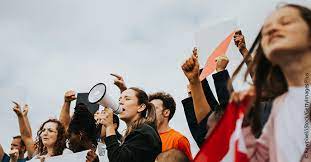
DEMOCRACY AND EDUCATIONAL COMMUNICATION
by Carlos Ferraro*

"Politics, according to the Church's social doctrine, is one of the highest forms of charity, because it seeks the common good." - Source: Encyclical "Fratelli Tutti" (2020)
"Democracy needs virtue if it does not want to fall victim to its own mechanisms." - Source: Encyclical "Fratelli Tutti" (2020)
When countries with formal democratic systems approach electoral times, it is common to hear citizens complain about politicians, speak badly of politics and, in many cases, refrain from commenting on the subject, arguing that they are not interested and disbelieving in it and supposedly staying away from it.
It is common to believe that politics is the sole domain of politicians, and to place the blame for all the ills that occur in the world solely on them.
In society, few understand that politics is the responsibility of those who exercise power and represent them and of those represented who elected them to various public offices.
This argument, which may seem basic, nevertheless contains the crux of what weakens the democratic system the most.
There is no one else responsible for what happens - for better or worse - in democracies than civil society itself and the citizens that comprise it.
The vote must be conceived as a conditional and provisional letter of power towards the leader, the result of a process of training, critical information and fundamentally of the awareness of values that build the common good in its maximum scope on the part of the leader.
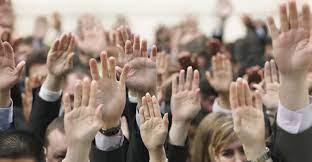
What is it like to be a citizen?
He is an active and responsible individual who must be interested and constantly informed about what is happening in the world, in the region where he lives, in his own country and in his community of origin.
Be open enough to information from different sources, avoiding being pigeonholed into those that only show the reality that fits your beliefs, thereby falling into an informational and cognitive bias that keeps you in a safe zone of thought and action.
Being a citizen means understanding the economy, geopolitical interests, human rights, and having a sensitive perspective on socially disadvantaged groups. Understanding how the hegemonic media operates, especially as we enter the pre-election period. Critically analyzing reality. Learning to argue in order to debate. Expressing and questioning one's own ideas and those of others. Listening with empathy. Dialoguing, guiding, proposing, and even giving hope.
Citizens must understand and accept that democracy doesn't work solely with voting; it requires their active and ongoing participation as protagonists. They must learn to demand and fight for their rights and those of others, and to monitor and demand that their representatives fulfill their mandates.
You must become aware and practice collective and solidarity, not individualistic, "every man for himself."
It might be thought that meeting these requirements in the ordinary citizen is a utopia. And yes, it is. However, who could prove that a citizen with these achievements, virtues, and abilities would not substantially improve democracy? Or, that true democracy is possible without them.
It's common to hear political scientists or sociologists question democracy as a valid system of representation. It may need to be rethought in terms of representation or participation, taking into account the experiences of the people within that system. But any new democracy that is conceived requires interested, involved, active, and empowered actors.
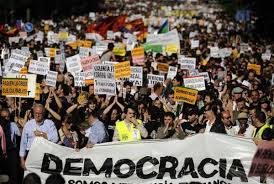
It's of little use to shift blame and constantly complain about politics. It's of little use to preach, "They're all the same," "There's no way out," "It's useless to fight the powers that be," "They're all corrupt." Such thoughts or attitudes don't contribute to change, they don't bring about a solution, they're just convenient manifestations that place the individual in submission to the power they complain about, and at the same time, they weaken democracy.
It is imperative to understand that if I do not exercise and protect my rights and those of others, the interests of spurious power will advance through abuse and domination.
It's pointless to think that democracy works on its own. It's wrong to believe that in exercising it, anyone can do whatever they want. Freedom, an essential component of democracy, demands limits and responsibilities from all actors in their various roles and functions.
Although it's difficult and sometimes understandable to accept, it's necessary to consider that, in reality, most politicians are not corrupt. In fact, this is the case. It's unfair to fail to recognize that many of them work, often with particular effort, to carry out the ideals to which they committed themselves in order to improve reality. It's fair to reflect on the things that are achieved, to make an effort to objectively view actions that bring about change for the common good, regardless of the ideology represented by the leader. It's imperative to understand that not everything and not everyone are the same.
The democratic citizen is not a static actor. He or she experiences a permanent process of civic growth. He or she is interested in and defends public affairs; and even if he or she personally needs little from them, he or she is aware of the importance of policies that improve the quality of life of the social collective.
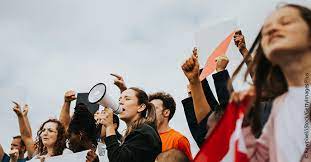
But a citizen is also someone who must keep their memory active. They must remember the events that shaped today's reality. Memory is not a nostalgic or resentful gaze. It is what allows us to make present the "thought-out past," so as not to repeat what recent or past political history teaches us must change to achieve better results.
If we agree that this is how citizenship is formed for a fully functioning democracy, there is much to be done.
The first thing we think about is the need for education and from there we come to the question:
What type of education forms a citizen?
Let us first think about the education that should not be .
It cannot be one that is functional to the system that needs to be transformed. One that teaches history uncritically, in which the teacher fails to engage in dialogue with the learner. An education that ignores the political dimension of a society's life. An education that only educates for knowledge without delving deeply into values. An education based on meritocracy or competition. It cannot be an education that relies entirely on technology. It cannot be an education that denies differences. One that fails to teach how to contextualize, how to think critically, how to emancipate the learner. It cannot be an education where reality, the ultimate object of study, is left out of the classroom.
Today, the practice of education takes place within a framework of ideological reality that we cannot ignore: the rise of the far right, populism of any kind, neo-fascism, and ideological fanaticism that leads to fundamentalism of any kind. These extremisms adversely affect the development of democratic education. There is not much to discuss on this topic; the fissures, polarizations, and prejudices embedded in the social structure bear witness to this. Nor is it possible to build democracy with a media and social media system that expresses itself with symbolic violence, lies called fake news, disinformation, contradictory, and even perverse and dehumanizing discourses that fuel the social imaginary.
Thus, for the development of a citizen, education and communication must be inextricably linked. There is no education without communication, nor communication without education. Those who understand educommunication know that it constructs a holistic view of reality that combines knowledge and differences and recognizes complexity. It develops the critical and, at the same time, creatively purposeful dimension that makes the difference toward the possibility of change and recognizes the value of community and the collective.
Social change for democracy is not sustained by nihilistic or skeptical individuals. In fact, their discourses become dangerous because they don't contribute, they don't build, they are empty, they create a space for disbelief, and they force the confused or comfortable into a void that others will fill with other interests. In politics, the only empty spaces are those one is willing not to occupy or to abandon.
Democracies have recently suffered from a circulation of discourses that circulate with the complicity of political power and the hegemonic media, aggravated, in some cases, by the support of the legal system. It is notorious how these discourses appeal to defamation, discredit, and cynicism, often bordering on perversion. We are witnessing a degradation of political discourse that results in its naturalization and subsequent acceptance by the citizenry. Contradictions, the distortion of facts, and the excessively aggressive rhetoric seem unimportant; the "anything goes" mentality is accepted.
In the democratic landscape, we observe the emergence of leaders with violent and radical proposals as solutions to problems. And what is most worrying is that a social anomie seems to be taking shape, one that fails to recognize or respond to the low human quality of political figures. Leaders are accepted who lack political vision, a lack of sensitivity to the people, and even a lack of solid knowledge to manage the complexity of power and the real needs of the people, those they represent.
The majority of citizens have forgotten the essential principle of democracy implicit in the word that defines and means it, "demos" (δ ῆ μος) which means "people" and "kratos" (κράτος), that is, nothing more and nothing less than: sovereignty belongs to the people who exercise it directly or through their representatives. From ancient Greece through the French Revolution with its matrix of liberal democracy, democracy must surely be revalued as a system but in new terms.
The first step to take is simple and urgent: we must go back to the beginning, leveraging over 2,500 years of experience with democracy to know what needs to be corrected or changed. And we also have the knowledge to educate people to achieve this.
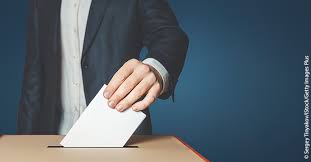
*He is an Educommunicator, President of SIGNIS ALC and Director of the Media Education Department of SIGNIS Worldwide






